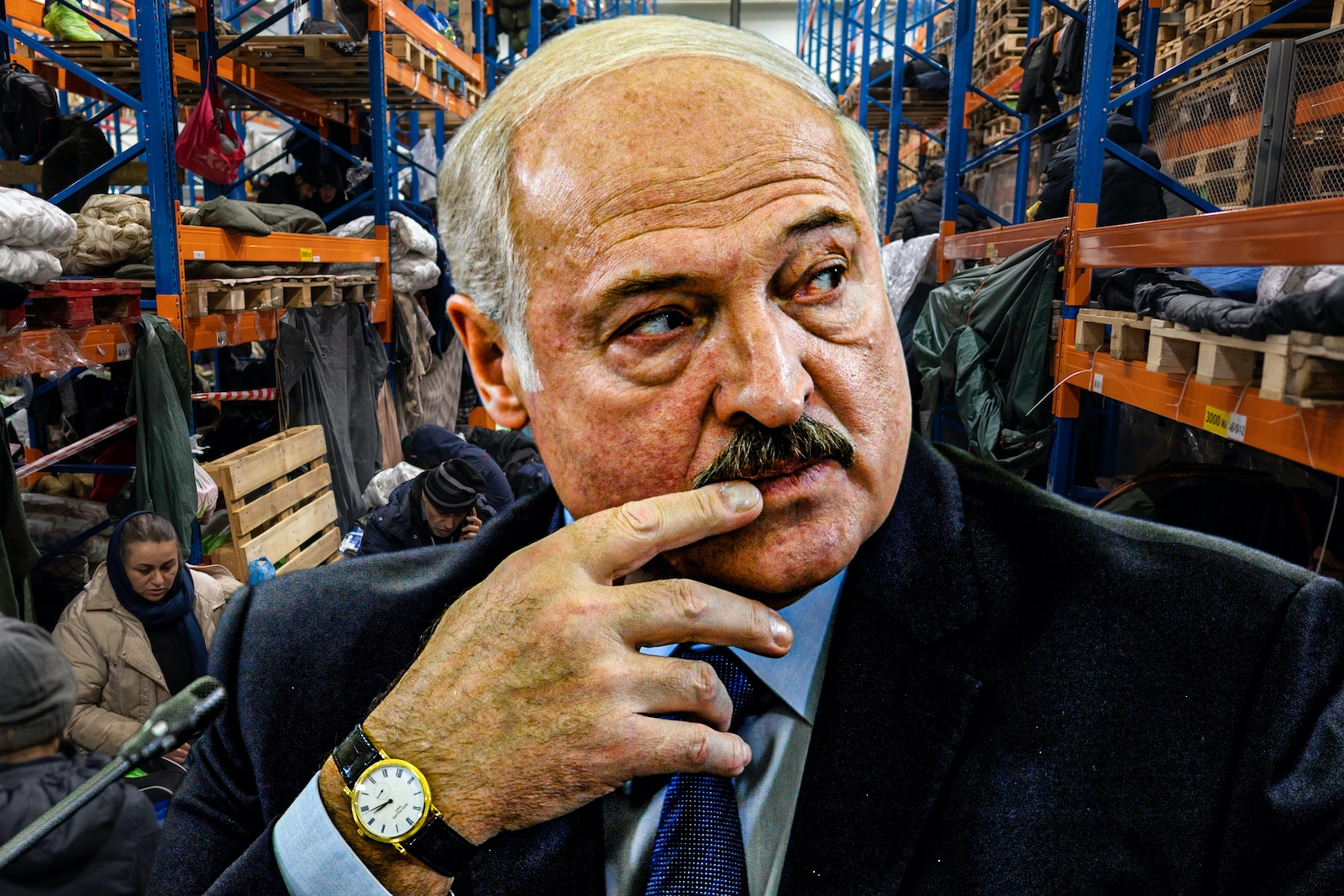
Lukashenko Using Migrants to Undermine European Values
Several months ago, Alexander Lukashenko, Belarus’ authoritarian president, manufactured a refugee crisis, loosening visa requirements, and steering migrants (primarily from Iraq) towards the EU border with Poland, Lithuania, and Latvia. Most have assumed his behavior to be in retaliation towards EU sanctions that were put in place after Belarus “hijacked” a flight to arrest Roman Protasevich, a blogger and political activist, but this misses a crucial part of the story.
It is likely that Lukashenko is seeking to provoke a response from Poland, Lithuania, Latvia, and more broadly, the European Union, to use violence against migrants trying to cross into the European Union. In so doing, he can undermine the European Union, and generate domestic pro-Belarusian and anti-EU sentiments.
Sometimes, when political leaders need to gain support, they do so by creating an enemy. There is no doubt that Lukashenko produced the current border crisis. He publicly stated: “We stopped drugs and migrants. Now you will eat them and catch them yourselves.” Here, Lukashenko’s actions indicate that he is seeking to undermine the European Union, an institution that stands in stark contrast to his governing philosophy.
The Belarusian foreign ministry tweeted that Belarus is being penalized because it unveiled “the ‘dark side’ of European democracy,” clearly referring to the current migrant border crisis, where the EU has been accused of applying violent illegal pushbacks to stop border crossings. Belarus is attempting to flood the EU with migrants to rouse specific reactions. The negative press the EU receives is what Lukashenko is banking on.
This is a weird and awful logic. It results in Belarus being punished not just by individual sanctions, but by whole packages of sanctions. It is being punished only because we have revealed the “dark side” of European democracy #OSCEMC2021 pic.twitter.com/v0D90XS073
— Belarus MFA 🇧🇾 (@BelarusMFA) December 2, 2021
Recently, it has been discovered that individuals linked to the Belarusian security services were posing as activists and posting videos and pictures on how EU authorities allegedly used violence to deter migrant crossings. The accounts orchestrated how migrants of various origins were allegedly treated differently, showing an indiscriminate EU. The content was posted in many languages, mainly targeting groups from the Middle East and Europe, generating EU disapproval.
But why does Lukashenko need to turn to such extreme measures to rally support at home? Belarus has been accused of using violence against its own citizens during recent anti-government protests. Accordingly, the international press coverage on Belarus’ repressive measures against civilians has largely increased. Many protesters seek democratization or even closer ties with the European Union. Provoking violent reactions towards migrants can be Lukashenko’s strategy to show closer ties with the European Union is not the desired goal and steer attention another way. This leads us back to the foreign ministry’s comment on revealing the “dark side” of democracy.
Lukashenko’s recent address to migrants on the border is an additional method for him to use this crisis to his benefit. He stated that migrants who decide to stay will be provided with warm clothing and food. Those who wish to go back will be assisted in doing so. It’s clear that Lukashenko is no humanitarian, and any assistance must be viewed with suspicion. Essentially, Belarus is using the migrant crisis as a public relations campaign.
These messages to the migrants are an additional indication that the crisis was arranged for the purpose of provoking a specific response. The fourth package of EU sanctions imposed on Belarus after the Ryanair incident has not been lifted.
The opposite occurred: the EU imposed the fifth package of economic sanctions as a response to “continued human rights abuses and the instrumentalization of migrants.” If Belarus was using this crisis to pressure the EU to the negotiation table and lift sanctions, it clearly hasn’t worked, which with their experience they most likely anticipated.
It is important to recognize the border crisis as an ideological fight. Lukashenko wants to preserve his authoritarian regime and holds hostilities towards liberalism and democratic values. His mission in the international system is an ideological one, similar to Russia’s Vladimir Putin.
There is no doubt that this crisis on the Belarus-EU border is atrocious and a humanitarian catastrophe. It is likely that the motive behind it is to provoke violent reactions from the EU to create dissonance while pressuring for sanctions to be lifted is more of a secondary goal. Economic incentives are unique from ideological ones and must be differentiated. This is crucial for the EU and the international community to understand, since distinguishing the reasons for Alexander Lukashenko’s actions is the first necessary step to strategize effectively in addressing the crisis.
